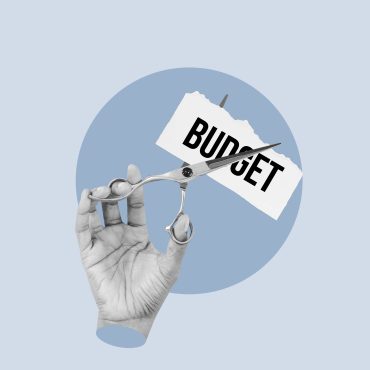
Senate GOP Proposes $1.6 Trillion Cuts to Fund Corporate Tax Breaks
6 minute read

Senate budget cuts targeting Medicaid and food stamps reshape federal priorities while corporations gain major tax advantages
Three Key Facts
- $800 billion Medicaid cuts proposed by Senate GOP to help fund $1 trillion in corporate tax breaks, with additional $300 billion cuts from the Affordable Care Act
- 3-3.5 million Americans could lose SNAP benefits entirely under the proposal, which redirects over $500 billion from food assistance to tax cuts for the wealthiest 0.1% of earners
- Early July deadline set by Senate Majority Leader John Thune, who threatens to cancel Fourth of July recess to pass legislation funding Trump’s tax cuts
Introduction
Senate Republicans advance a sweeping fiscal plan that cuts more than $1.6 trillion from healthcare and food assistance programs to finance tax reductions primarily benefiting corporations and wealthy Americans. The Senate Finance Committee’s proposal includes $800 billion in Medicaid cuts and eliminates SNAP benefits for millions of low-income families.
The legislation represents a fundamental shift in federal spending priorities, redirecting funds from social safety net programs to provide tax breaks exceeding $250,000 annually for the top 0.1% of earners. Senate Republicans position the measure as essential for economic growth while Democrats and advocacy groups warn of devastating consequences for working families.
Key Developments
The Senate Finance Committee released details of their tax cut funding mechanism this month, outlining stricter restrictions on state Medicaid funding strategies. The plan reduces Medicaid provider tax limits from 6% to 3.5% by 2031 and places new constraints on state-directed payment programs that help hospitals and healthcare providers.
Republican Sen. Josh Hawley of Missouri expresses concern about the proposal’s impact on rural hospitals, highlighting internal party tensions over the aggressive cuts. The Senate version diverges significantly from House proposals, setting the state and local tax deduction at $10,000 rather than the House’s suggested $40,000 limit.
Senate Majority Leader John Thune calls the current framework a starting point for negotiations but emphasizes the July deadline. Republicans seek a $5 trillion debt ceiling increase, $1 trillion above House limits, to accommodate the expanded tax cuts and spending changes.
Market Impact
Large corporations stand to benefit immediately from the proposed tax reductions, with technology firms and major manufacturers positioned to see substantial decreases in their federal tax liabilities. The corporate tax cuts free significant capital for research and development investments, acquisitions, and shareholder returns.
However, consumer-facing sectors face potential headwinds as millions of Americans lose purchasing power through reduced SNAP benefits and healthcare access. Google News analysis suggests retail and consumer goods companies may experience reduced demand as household budgets tighten.
State governments face increased fiscal pressure as SNAP administrative costs shift from 50% to 75% state responsibility. This change threatens public sector technology contracts and digital infrastructure investments as states manage tighter budgets.
Strategic Insights
The proposal creates distinct winners and losers across economic sectors. Technology companies gain from lower corporate tax rates but risk losing consumer demand as food insecurity and healthcare access decline among key demographic segments. The plan particularly affects low- and middle-income workers who comprise significant portions of the tech workforce and customer base.
Healthcare systems face dual pressures from reduced Medicaid funding and increased demand for emergency services as coverage gaps expand. Rural hospitals, already operating on thin margins, confront particular challenges under the restrictive funding mechanisms.
The legislation accelerates existing trends toward automation and cost-cutting as companies prepare for potential reductions in consumer spending power. Businesses may need to restructure talent acquisition strategies if healthcare and food insecurity rise among workers.
Expert Opinions and Data
Senate Finance Committee Chair Mike Crapo proposes additional modifications to green energy tax subsidies, seeking to phase out environmental incentives more gradually than initially planned. His framework caps tip deductions at $25,000 and overtime deductions at $12,500 per individual, scaling back some of the broader tax relief proposals.
The Congressional Budget Office estimates 3 to 3.5 million people lose all SNAP access under the current proposal, with millions more experiencing reduced benefits or healthcare coverage. These projections inform Democratic opposition arguments about the plan’s social and economic consequences.
Industry analysts note the contradiction between corporate tax relief and consumer base erosion, particularly for technology firms dependent on broad market participation. The plan’s emphasis on wealthy tax cuts while reducing middle-class support programs creates potential long-term demand challenges for consumer-facing businesses.
Conclusion
Senate Republicans advance their most aggressive social spending reduction plan in decades, trading healthcare and food assistance for corporate tax cuts in a high-stakes political gamble. The proposal’s success depends on party unity and public acceptance of dramatic fiscal priority shifts.
The legislation’s economic impact extends beyond immediate tax savings to fundamental questions about consumer demand, workforce stability, and state fiscal capacity. Business leaders across sectors now evaluate how massive social safety net reductions affect their operations, customer base, and long-term growth prospects.





